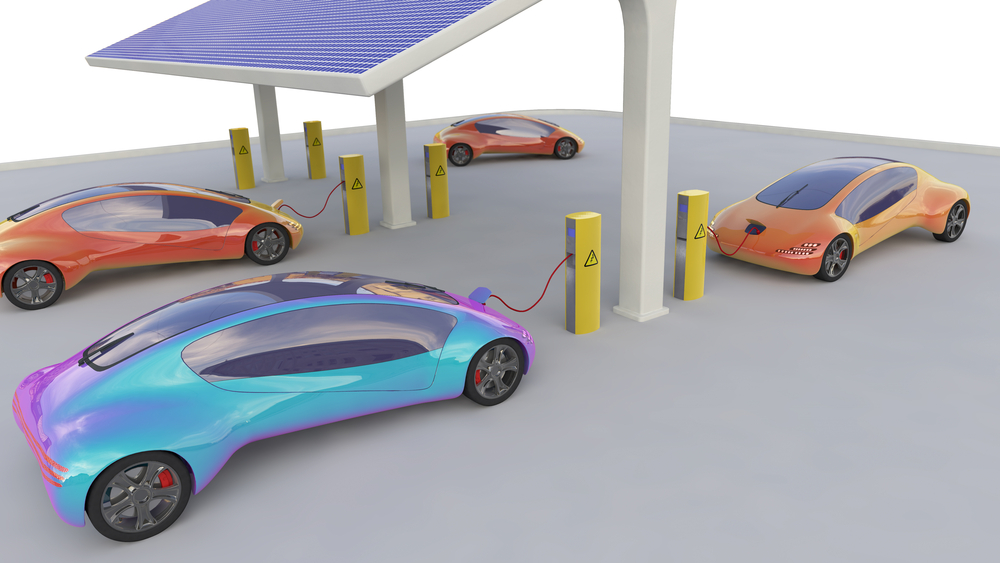9:13 am
Three Trends to Watch for in Future Gas Stations

Recently, the Wall Street Journal released an article discussing the future of traditional gas stations and the services they offer. With the popularity of electric cars and concerns of fuel efficiency for regular vehicles on the rise, consumer needs are shifting from what they once were. To keep up, the companies who provide these services have realized they must shift and change also. Among the insights you will find of interest:
“It’s all part of oil companies’ efforts to adapt to changing consumer habits and new technologies that threaten to upend the business of selling gas. According to a report published last year by the consulting firm Wood Mackenzie, electric cars are likely to reduce gasoline demand in the U.S. by 5%—and possibly by as much as 20%—by 2035. Improved fuel efficiency is expected to have an even greater impact. Automated vehicles and the spread of car sharing could also fundamentally change the market in the long term.”
The rest of the article goes on to detail the plans of many oil and gas companies for expanded electric car charging stations throughout Europe and North America, the development of more efficient fuel and acquisition of retail. In summary, the consumer oil market is changing and innovation is on the horizon for a previously static industry.
Electric charging stations and more economical fuels are sure to be available at gas stations everywhere, but these trends suggest more than that; they show an industry overhaul on the horizon. As consumers move towards green alternatives and sustainability, those standards will soon apply to every process. Here are three other predictions about the future of gas stations:
1) Car Connected Apps
Recently, Google ditched its initial self-driving, pod car in favour of retrofitting Chrysler Pacifica minivans with smart technology. Google has said it wants to focus more on creating usable technology for consumers. The Wall Street Journal article discusses payment apps, but as cars move towards becoming completely integrated with technology it opens up the possibility for an endless number of apps.
Beyond payment, gas station apps soon may be able to sync with cars to alert you when your vehicle needs gas; enable you to book a car detailing; and even show you the foods available at your nearest fuel station location. The Shell app already offers many of these services; however, once this technology is completely integrated into vehicles, the apps will be almost maintenance free. You will no longer have to input your information – your car will do it for you.
2) Sustainable Food
The article discusses the growing importance of food sales in gas stations and the increase in environmentally friendly driving options such as electric cars and more economical fuels. These two statistics suggest an increase of consumer interest in sustainability. In 2016, fast food sales declined considerably and while many are speculating it’s due to the increased price of oil, there is also a considerable and growing demand for more sustainable food.
There is a trend towards healthier options and increased product selection, as more health-conscious foods can be found in convenience stores than ever before. If food sales in gas stations continue to grow the natural next step is healthy options with recyclable packaging.
3) Energy Efficiency
Revenue from retail stations has provided some financial cushioning when commercial oil prices slump for oil and gas producers, and renewable energy sources will do the same in the future. Already Shell, Enbridge and TransCanada have begun to invest heavily in renewable energy sources, so it seems highly likely future gas retail facilities will be built using the latest energy efficient technologies.
To save on cost and while being mindful of environmental impact, future gas stations could run through a hybrid of renewable energy and current electrical energy. Car washes will move towards less water wastage and fuel up stations might include bins for recycling and biodegradable food waste. Energy efficient buildings frequently save money on heating, electricity and water costs – the move to sustainability makes financial sense for many gas retailers.
There is no way to predict the future of any industry, but statistics can show trends, and those trends are showing gas stations will begin to modernize as technology continues to advance. Last year in Canada the number of gas stations rose due to stronger profit margins. The expansion of new services will only help to increase those figures.
